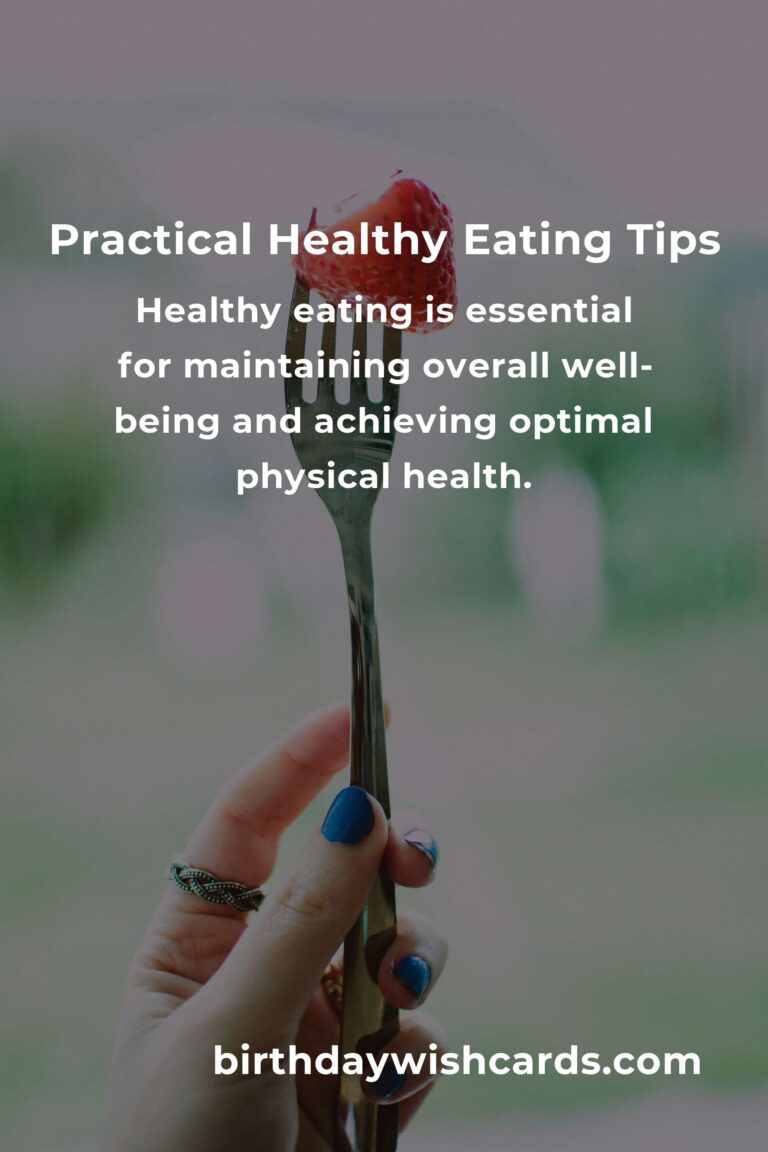
Healthy eating is essential for maintaining overall well-being and achieving optimal physical health. It involves making informed food choices and developing mindful eating habits that support your body’s nutritional needs. In this article, we’ll explore practical tips for incorporating healthy eating into your daily life.
Understand the Basics of Nutrition
Before diving into practical eating strategies, it’s crucial to understand the basics of nutrition. The human body requires a balanced intake of macronutrients—carbohydrates, proteins, and fats—and micronutrients, such as vitamins and minerals, to function properly. By understanding these components, you can make informed food choices that promote health.
Plan Your Meals
One of the most effective ways to ensure healthy eating is through meal planning. Start by setting aside time each week to plan your meals and snacks. Consider incorporating a variety of foods from different food groups to ensure a balanced diet. Meal planning not only helps you make healthier choices but also saves time and reduces food waste.
Choose Whole Foods
Whole foods, such as fruits, vegetables, whole grains, lean proteins, and healthy fats, are nutrient-dense and provide the essential nutrients your body needs. Opt for whole foods over processed or packaged options whenever possible. This transition can significantly improve your nutritional intake and reduce the risk of chronic diseases.
Practice Portion Control
Portion control is key to maintaining a healthy weight and preventing overeating. Use smaller plates and bowls to help control portion sizes. Pay attention to hunger cues and stop eating when you’re satisfied, not when you’re full. Being mindful of portion sizes can help you enjoy your favorite foods without overindulging.
Stay Hydrated
Staying hydrated is a fundamental aspect of healthy eating. Water plays a vital role in digestion, nutrient absorption, and overall health. Aim to drink at least eight 8-ounce glasses of water daily, and adjust your intake based on activity level and climate. Hydration not only supports bodily functions but also helps control hunger and maintain energy levels.
Limit Added Sugars and Salt
Excessive intake of added sugars and salt can lead to health issues such as obesity, heart disease, and high blood pressure. Be mindful of the sugar and salt content in packaged foods. Opt for natural sweeteners like honey or maple syrup and use herbs and spices to flavor your dishes instead of relying on salt.
Be Mindful of Eating Habits
Mindful eating involves paying full attention to the experience of eating and enjoying your food without distractions. Take the time to savor each bite, chew thoroughly, and appreciate the flavors and textures of your meals. Mindful eating can improve digestion, reduce overeating, and enhance your relationship with food.
Incorporate Regular Physical Activity
Physical activity complements healthy eating by promoting a healthy metabolism and improving overall health. Aim for at least 150 minutes of moderate-intensity aerobic activity or 75 minutes of vigorous-intensity activity each week. Combine this with strength training exercises to support muscle health and increase calorie burn.
Seek Professional Guidance
If you’re unsure where to start or have specific dietary needs, consider seeking guidance from a registered dietitian or nutritionist. These professionals can provide personalized advice and meal plans tailored to your unique health goals and lifestyle.
Conclusion
Incorporating practical healthy eating habits into your daily routine can significantly enhance your physical health and well-being. By understanding nutrition, planning your meals, and making mindful food choices, you can create a sustainable and enjoyable approach to eating that supports your overall health goals.
Healthy eating is essential for maintaining overall well-being and achieving optimal physical health. Meal planning helps you make healthier choices and saves time. Whole foods are nutrient-dense and provide essential nutrients. Portion control is key to maintaining a healthy weight. Staying hydrated is a fundamental aspect of healthy eating. Mindful eating involves paying full attention to the experience of eating.
#HealthyEating #Nutrition #Wellness #MindfulEating #WholeFoods













